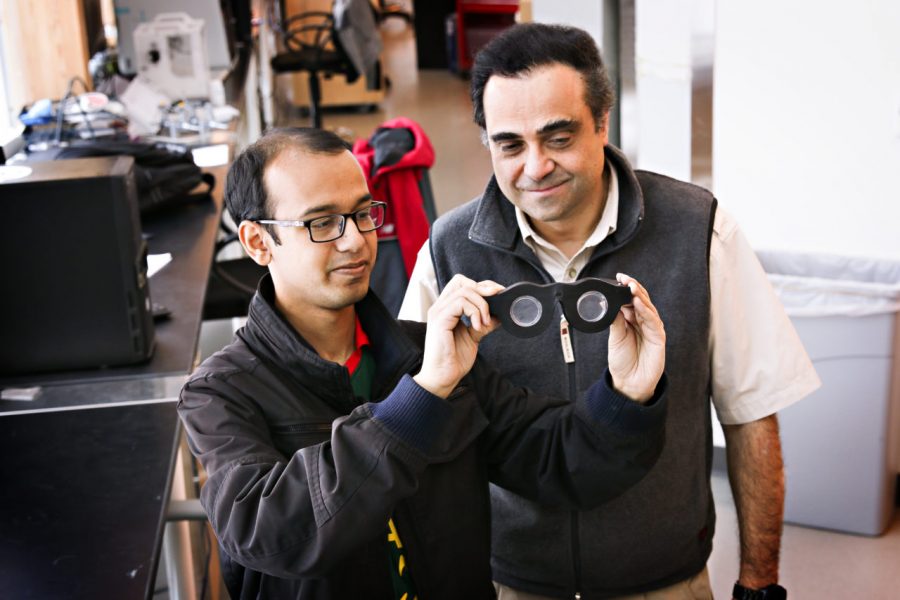Smart cars, smartphones and smart TVs have made life safer, more entertaining and more convenient. Researchers at the University of Utah are working to add smart glasses to the list.
Electrical computer engineering professor Carlos Mastrangelo and doctoral student Nazmul Hasan teamed up to create what may be one of the next trends in the optical business — liquid-based lenses that automatically adjust to what the wearer is looking at.
The lenses are placed in battery powered frames that adjust to the user’s prescription. Before the wearer puts them on, they type their eyeglass prescription into a smartphone app that controls the glasses through a Bluetooth connection. When the user gets a new prescription, they only have to make an adjustment in the app. This system means that users don’t need to replace their lenses every time their prescription alters.
Optician Sheila Hay praised the developments made by Hasan and Mastrangelo in the optical field. However, she is concerned about people abusing this new piece of technology.
“My worry is for the few patients who may self-medicate their prescriptions and think it replaces their annual visit to an optometrist or ophthalmologist,” Hay said. “There are several things that go into a comprehensive eye exam. For example, the care for those who are diagnosed with cataracts, glaucoma or diabetes. In a comprehensive eye exam, the doctor will be able to diagnose and help treat medical conditions aside from prescribing for vision.”
Hasan and Mastrangelo still have work to do on their invention. They are continuing to tweak any possible errors that may arise. They have been working on a prototype of the lenses for over a year. Currently they are trying to make the frames of the glasses lighter and designing various styles to suit different tastes.
The potential of smart glasses has garnered attention from people around the world, but has more specifically created excitement among students at the U.
“I hope this will inspire the students,” said Hasan. “The purpose of our work is to help a large section of people. The amount of response we got in the last couple of days is overwhelming. We even got emails from people wanting to be a subject in our testing. They want to be a part of this work in order to help others. All of this is inspiring to us as well as to all other students. We got the exposure at least from 30 different media sources from all over the world with the tag ‘University of Utah researchers.’ Of course, this is a matter of pride for us as University of Utah students.”
Hasan doesn’t have counsel for other students working to make life-changing innovations other than to keep doing what they’re doing. “I am too ordinary to give any advice to others, but I always follow my passion with a true and honest soul.”


